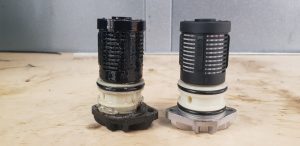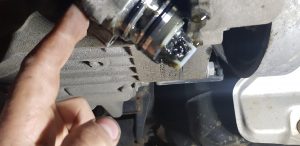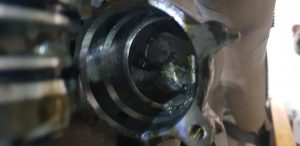Posted on: December 2nd, 2024 by NEAT
Why Regular Servicing is Essential for Your VAG Vehicle (and What Happens When You Skip It)
If you’re an Audi, Volkswagen, Skoda, or SEAT owner, you already know that your vehicle isn’t just a car—it’s a high-performance machine that’s built to last. But even the most robust engines require regular upkeep to stay in top shape. Keeping up with your VAG vehicle’s service requirements does more than maintain performance—it protects your investment, keeps you safer, and can save you big money down the line. Here’s what you need to know about why regular servicing is essential and what can happen if you let it slide.
What Are the Key Service Requirements for VAG Vehicles?
VAG vehicles come with a manufacturer-recommended service schedule that covers everything from basic oil changes to more intensive maintenance. Here are some of the essential service intervals:
- Oil Changes and Filter Replacements
- Interval: Every 10,000–15,000 miles or annually.
- Why It Matters: High-performance engines require clean oil to lubricate and protect their moving parts. Ignoring this can lead to sludge buildup, which clogs components and causes wear and tear.
- Brake Checks and Replacements
- Interval: Typically every 20,000–30,000 miles, depending on use.
- Why It Matters: Over time, brake pads, discs, and fluid degrade, which compromises braking efficiency. If left unchecked, this can lead to safety issues or even expensive rotor and caliper replacements.
- Timing Belt Replacement
- Interval: Every 60,000–100,000 miles, depending on the model.
- Why It Matters: The timing belt synchronizes your engine’s components. If it fails, you could face serious engine damage that requires costly repairs.
- Transmission Fluid and Coolant Changes
- Interval: Transmission fluid every 40,000 miles; coolant every 2–5 years.
- Why It Matters: These fluids keep your engine and transmission from overheating. Old or low fluids can lead to premature wear, overheating, and expensive repairs.
- Spark Plug Replacement
- Interval: Every 30,000–60,000 miles.
- Why It Matters: Spark plugs affect fuel efficiency and power. Worn plugs can cause rough starts, poor fuel economy, and misfires, which can damage the engine over time.
What Happens if You Skip These Service Intervals?
Skipping routine maintenance may seem like a minor oversight, but neglecting service intervals can have serious consequences for your VAG vehicle’s performance and lifespan.
- Reduced Performance and Fuel Economy
- Over time, dirty oil, clogged filters, and worn spark plugs reduce your vehicle’s efficiency. The engine has to work harder to produce the same power, which leads to increased fuel consumption and a sluggish driving experience.
- Engine Damage and Costly Repairs
- Neglecting oil changes and timing belt replacements can cause extensive damage to the engine, one of the most expensive components to repair. Engine parts can wear prematurely, and if a timing belt fails, it can cause catastrophic engine damage requiring thousands of pounds to fix.
- Brake Failure and Safety Risks
- Worn brakes can reduce stopping power, compromising your safety on the road. In worst-case scenarios, neglecting brake maintenance can lead to brake failure, putting you and other drivers at risk.
- Transmission Problems
- Transmission repairs are among the most expensive vehicle repairs. By not changing the transmission fluid, you risk damaging the gearbox and experiencing rough gear shifts, especially in automatic models.
- Decreased Resale Value
- When it’s time to sell or trade in your VAG vehicle, a full-service history can increase its resale value. Buyers look for well-maintained vehicles, and a lack of records could make it harder to sell or reduce the price you’re able to get.
The Bottom Line: Protect Your Investment
For VAG vehicle owners, regular servicing isn’t just about ticking boxes; it’s an investment in performance, safety, and value. Following the manufacturer-recommended schedule will keep your car running at its best and help you avoid unnecessary repairs and expenses.
Regular servicing doesn’t just benefit your vehicle; it protects your driving experience and keeps you confident behind the wheel. Looking after your VAG vehicle’s service requirements is the best way to ensure it remains reliable, safe, and enjoyable for years to come. To book in your vehicle with us for servicing or repairs, contact us ‘here‘.
Posted on: December 4th, 2023 by NEAT
We’ve decided to periodically carry out a Vehicle spotlight! This one is based on a Golf R we have in the workshop.
We had this customers vehicle in a few weeks ago for a number of different things. An Interim service, Haldex service and fit the customer supplied Res-delete. We don’t usually allow customers to supply their own parts for warranty reasons. However, with performance parts and upgrades we do as long as they are from a reputable supplier.
What work was carried out?
We started with the Interim service. This allows us to give the vehicle its 26 point health check prior to any work carried out. This is for a number of reasons, the main one being to make sure the vehicle is in a good condition (especially in this vehicles instance) before upgrading parts. It also gives us time to relay the information to the customer if anything needs replacing. This means we can price up any parts required and potentially get them fixed on the same day. This stops the customer having to come back in again unnecessarily. Once the vehicle health check is carried out and completed for the customers record we went ahead and completed the Oil and filter change. We then top up all of the under bonnet fluids.
We then moved onto the Haldex service, as you can see from the pictures. The build up of metal filings on this vehicle in 79,898 miles was massive! We advised an upgraded Racingline magnetic Haldex plug to minimise the amount of metal filings getting caught in the gauze filter. Instead the metal filings are pulled towards the plug. The Racingline upgraded plugs also come with extra washers so your next 5 Haldex services can use the magnetic plug again and only the washer is replaced!
Once the Haldex service was complete we moved onto fitting the Res-delete. We have a Before and After video of the res-delete here! The result was much deeper and throatier, in our opinion much nicer than stock!
How to get in touch?
To get a quote for any service/maintenance work or for pricing on fitting upgrades give us a call or email!
01642 613852 or northeastautotech@gmail.com.
Vehicle spotlight
Posted on: April 17th, 2023 by NEAT
Car manufacturers servicing recommendations
The importance of keeping up to date with car manufacturers servicing recommendations. Lets be honest, the majority of people don’t take pleasure is paying a bill for their car. Even though most people rely on their vehicles so heavily every single day! Therefore, when it comes to servicing requirements, it’s easy to put it off. Thinking ‘Ahh well I haven’t had any issues with the gearbox, so why does it need servicing?’ The reason we should all keep up to date with the car manufacturers recommendations is to prevent issues arising. Potentially causing secondary issues within the car! The recommendations are there for a reason so let’s not put them off!
Transmission servicing
Transmission servicing covers your Gearbox, Haldex and Differential. They all have different advisories (I know, hard to remember when to MOT, never mind to service your Haldex) however its important to at least roughly stick to the guidelines. VAG advise every 38,000 miles for your gearbox. If not serviced essentially it will result in a huge increase in friction as the more viscous contaminated fluid is unable to lubricate the metal parts properly. Your previously smooth gear shifting will become clunky, sticky and could start to slip.
The Haldex servicing requirements are different depending on which you have. Gen 1-4 is advised every 38,000 miles and Gen 5 is advised every 20,000 miles. Gen 1-4 have a filter which is changed however, Gen 5 has a gauze filter which we remove along with the pump and clean before putting back together. You can tell which Generation you have by the year usually however there are some crossovers. If you’re unsure and require this service get in touch and we can help you out. Not having your Haldex service can literally stop it from working over time resulting in your 4-wheel drive vehicle having major problems. The only fix is a costly new Haldex and that will set you back a lot more than keeping on top of the servicing!
The Differential oil, Transfer box oil and Active diff services are all recommended at 38,000 miles.
Servicing
Your Interim and Major servicing should generally be alternated and at 10,000 mile intervals/yearly. This includes your Oil, Fuel, Air and pollen filters. If you have a petrol vehicle with spark plugs these should be changed every 30,000 miles but this can change depending on your specific vehicle and driving style (You know who you are). If your vehicle is under warranty and something fails within the engine/gearbox and it is deemed to be due to poor or lack of servicing, be aware you may not be covered and will have to fork out for the repairs yourself.
Timing belt services are advised at 80,000 miles or 5 years, whichever comes first. Apart from the 1.0-1.5 Tsi engines, these are advised every 4 years regardless of milage. Not getting your timing servicing could have catastrophic consequences. When the timing belt breaks, the crankshaft will continue to spin, while the camshaft will stop turning. As a result, the pistons will continue to rise and fall in their cylinders and can, in some instances strike the valves. When this happens, the pistons, valves and cylinder heads will be damaged, and because it happens so quickly, the damage will be virtually instantaneous.
We then have your more basic servicing all regardless of mileage:
Brake fluid change – every 2 years
Coolant/anti freeze – every 5 years
Air con – every 2 years
Hopefully this gives you a brief overview of your VAG servicing requirements and how important they are! If you would like to book in you can contact us via Facebook, Our contact page or call us on 01642 613852.
Posted on: April 8th, 2021 by NEAT
Common Golf R/Audi S3 issues… what to look for?
We often get asked questions about specific vehicles, their common issues and problems to look out for. Customers get a new vehicle and the first thing they want to do is know exactly what potential issues they could face, and rightly so! If you know what to look out for you can spot problems before they properly develop and potentially cause other issues in the vehicle!
We thought it would be a good idea to blog each month a case study of a different popular vehicle! This way you can easily find information from us regarding specific models within the VAG.
So what am I looking for?
This month’s blog we are going to focus on the Golf R and the Audi S3. Both have the EA888 engine which means they carry the same niggly issues. The most common problem people have is with the Haldex, mainly because people do not know it needs to be serviced. Off the back of the Haldex not being serviced the 4WD becomes non-existent and the vehicle essentially becomes FWD. The rear Diff then could need replacing, which would be a much more costly repair! This could be avoided by just having your Haldex serviced at the correct intervals. We recommend Gen 1&2 every 38,000 miles and Gen 4&5 every 20,000 miles.
The next issue we come across is the IS38 Turbo charger having issues. This turbo employs a ‘zero tolerance’ compressor design. There is virtually no clearance between the compressor wheel and housing. Improving efficiency and contributing to the incredible performance of the turbo. The compressor housing is lined with a Teflon insert, as the compressor wheel meets it in normal operation.
The issue is that batches of the turbo have not been balanced properly. Several turbos have been stripped and examined, only to find the balancing is out by a very large margin on a few turbos. This causes the compressor wheel to move off centre slightly. On a “normal” turbo this would not be an issue, but on the IS38 the compressor wheel is hitting the Teflon insert. Digging in and snapping the shaft instantly. Therefore, we would advise before tuning (if that is a route you would want to go down) having an inspection to try reducing the likelihood of it failing.
Clutch Issues
The Clutches in the manual gearboxes also show some issues. The clutches are weak and show signs of slipping early on in age and miles! You will notice your clutch slipping if you are having trouble changing gears, the clutch pedal sticking, vibrating or appearing to feel spongey or loose; or Momentary loss of acceleration caused by a feeling of a ‘slipping’ clutch. The main problem with the clutches is that they are the same that are used in the Golf GTI’s. It has around 70HP less and is only 2WD. With the added traction of the Golf R and the added horsepower this then massively reduces the lifespan. Anybody tuning their car even at stage 1 level would have to consider replacing the clutch for reliability.
To ensure you get the most out of the vehicle make sure you keep up with your regular servicing intervals and keep an eye on the quality of your driving. Harsh acceleration and lots of start stop driving will do the clutch no favours.
What else?
Other common issues on the EA888 engines include piston and piston ring issues and Water pump issues. Squeaking front suspension arms is another concern. Golf R owners also complain of a defunct battery which needs replacing within the first two years of the vehicle’s life.
Hopefully, this gives you a quick overview of what to look out for if you are a Golf R/Audi S3 owner. Or if you are considering buying one in the future you can look at the pros and the con’s, every car has them! You can get in touch with us on 01642 613852 if you are wanting vehicle inspection. We carry out a full report on the vehicle which you can also keep for your records!
You can also get in touch via the contact page here: https://www.northeastautotech.com/contact/ or our facebook page here: https://www.facebook.com/northeastautotech/
Posted on: April 9th, 2019 by NEAT
Gen 4 haldex servicing tiguan, golfs, A3 is sometimes overlooked. Both VW and Audi recommend the oil is changed at 38,000 miles. BUT there is something they miss on the dealer servicing.
In most cases, when oil is replaced as a serviceable item, a filter is accompanied with it. VW Audi group decided to use the Generation 4 Haldex coupling drive on various of there models. They did not make the filter a purchasable item. Following manufacturers service guidelines, your filter does not get changed resulting in potential damage to the unit from oil starvation.
So what do we offer you may ask? We purchase quantities of filters direct from the manufacture of the haldex unit making our service a complete not just oil change. This aids the life of the Haldex unit.

Gen 4 Haldex servicing tiguan Golf R S3 A3 filter can be seen above. Left filter has covered over 50,000 miles. The customer described the rear of the vehicle to be un-sturdy whiles driving round corners and roundabouts. We carried out a diagnostic test to find pump problems with the Haldex. Everything was resolved with the correct service procedure and the vehicle repaired without the need to replace unnecessary parts.
Posted on: March 17th, 2019 by NEAT
Haldex generation 5 service on Golf R
Haldex generation 5 service on Golf R, S3 , RS3 should be carried out at 38,000 miles. Our servicing differs from the dealer. How? you may ask. Well, when the oil is changed at the dealership this is only half the job. Here at North East Auto Tech we remove the pump. By doing so we can clean the pump strainer, helping clear through any sludge build up which is the main cause for failure.

Fault codes such as the below are common failure codes.
16670 – All-Wheel Drive
C1113 07 [008] – Mechanical Failure
131599 – Control Module for All Wheel Drive Clutch – Communication Failure





